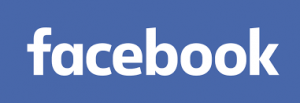Facebook Considers a Spring 2012 IPO at a $100 Billion Valuation
 We all knew it was coming, a spectacular IPO at a high valuation, for one of the world’s most innovative and intriguing companies. After many years of capturing young people’s internet time around the world, Facebook is moving closer to an IPO, reportedly valued at a $100 billion. The company may potentially file before year-end and go public between April and June according to Bloomberg. Facebook would likely raise $10B, effectively listing 10% of the company. Facebook is a company and brand that investors are intimately familiar with. Many investors have uploaded wide expanses of personal data to the company’s servers and have also been regular members for a number of years. We even have feelings about the corporate history through the venture capital phase due to the success of the Oscar nominated film, “The Social Network”. It’s hard to imagine the shares not going up by a lot right out of the gate no matter what the valuation. There is only one Facebook and companies so innovative and forward thinking only come around once in a long while.
We all knew it was coming, a spectacular IPO at a high valuation, for one of the world’s most innovative and intriguing companies. After many years of capturing young people’s internet time around the world, Facebook is moving closer to an IPO, reportedly valued at a $100 billion. The company may potentially file before year-end and go public between April and June according to Bloomberg. Facebook would likely raise $10B, effectively listing 10% of the company. Facebook is a company and brand that investors are intimately familiar with. Many investors have uploaded wide expanses of personal data to the company’s servers and have also been regular members for a number of years. We even have feelings about the corporate history through the venture capital phase due to the success of the Oscar nominated film, “The Social Network”. It’s hard to imagine the shares not going up by a lot right out of the gate no matter what the valuation. There is only one Facebook and companies so innovative and forward thinking only come around once in a long while.
The above logic will be the conventional wisdom surrounding the deal. In a market that has been one of the more difficult investment environments in years, there will be a propensity to gravitate towards a great company that is a symbol of the innovation that represents America at its best. But how valid are comparisons to other sensational IPO deals which generated spectacular returns? IPO investors in companies like Microsoft, Apple, Intel, and Google amassed fortunes. Let’s take a look at some of the other technology companies which changed the world:
Microsoft (MSFT) – 10 year return of 63x
Investors in the spring of 1986 could buy the shares without much fanfare for $0.10 (split adjusted). Not only could you have purchased Microsoft shares close to the IPO for a dime, you could have bought the shares from March 1986 to October 1986 at that price. A decade later, the shares had appreciated to $6.30 – generating 63x profits.
Apple (AAPL) – 8 year return of 54x
Apple shares lost money in the first 10-years of their public company history. Steve Jobs was ousted by the board of directors as CEO. Instead let’s focus on the returns for investors who were savvy enough to purchase Apple in 2003 as the IPod was just being launched. You bought the shares at about $7 compared to prices today of $376 – generating 54x profits.
Intel (INTC) – 10 year return of 50x
Intel hit the public markets earlier than Microsoft (1982) with even less fanfare. The stock was underappreciated in the first 4-years as a public company. In the spring of 1986, if you bought Intel instead of Microsoft you paid $0.50 (split adjusted). The shares rallied to $7 over the next decade for a return of 14x profit. Looking at Intel’s best 10-year stint, you could have bought the shares in 1991 for about $1 and held to $50 in 2000 (excluding even higher prices during the last gasps of the technology bubble).
Google (GOOG) – 7 year return of 7x
Google came to market more recently in 2004. The IPO price was $85. Over a 7-year public company history, the shares have traded up to $588 today, for a return of only 7x.
The major difference with the above four examples is that you had an opportunity to purchase the shares before the highest valuation transpired and before the hockey stick part of the growth curve. A similar opportunity won’t exist with Facebook investment, which will dramatically alter the possible returns. If Facebook does indeed IPO at $100B it would need to become the largest company in the world (by today’s market valuations) to just approach half the returns which Google generated for IPO shareholders!
A 10x bagger would make Facebook the world’s first $1 trillion company.
In terms of generating anywhere remotely close to Microsoft, Apple, or Intel returns in their respective heydays – Fugetaboutit!
The outsized Facebook returns have already been earned. Moreover, there will be huge risks to quickly buying the stock where it is likely to trade on day one, which will be at a valuation north of Intel and Amazon and likely approaching Google and Microsoft. I suspect that the single biggest risk factor will be exposure to the inevitable de-rating of the valuation as Facebook simply remains public. It happened to the four superb companies mentioned above and Facebook won’t be any different. Nonetheless, Facebook will have a fascinating prospectus to pour through and IPO roadshow to attend.

